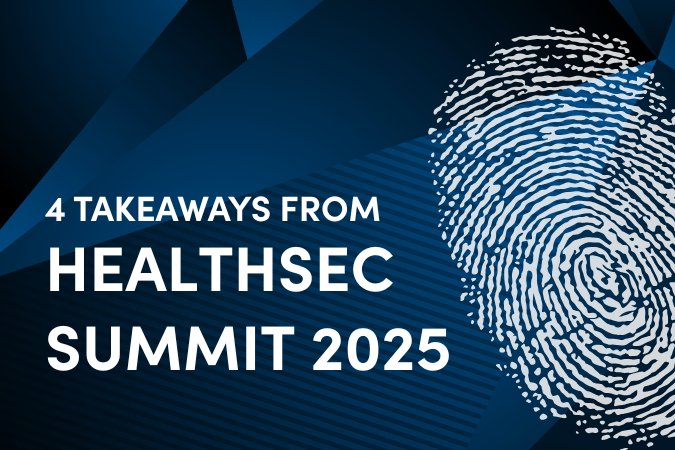Quisitive was proud to be a Keynote Sponsor of this year’s HealthSec Summit. This premier gathering brought together CISOs, CIOs, and security professionals from across healthcare to confront the rising challenges of cybersecurity head-on and to collectively build a more resilient future.
With the healthcare industry continuing to face escalating threats, from ransomware attacks to medical device vulnerabilities, this year’s summit came at a critical moment. As sponsors and thought leaders, we had the unique opportunity to engage in high-value conversations, share insights from the field, and learn alongside peers about the most pressing issues and innovations in healthcare cybersecurity today.
What We Heard on the Ground: Top Cybersecurity Trends from HealthSec
1. Elevating the Protection of Protected Health Information (PHI)
Safeguarding PHI is more than a compliance issue, it’s a core element of patient trust and organizational integrity.
At the summit, leaders emphasized the importance of multilayered security strategies to protect sensitive data across complex hybrid environments. Identity and access management, endpoint security, and zero-day threat detection were all top of mind as ransomware attacks grow more targeted and costly.
> See Quisitive’s Managed Security Services for Healthcare
2. Anticipating the Next Wave of HIPAA and Regulatory Changes
With updates to HIPAA and new federal regulations on the horizon, healthcare organizations are under pressure to modernize their cybersecurity postures. Presenters shared the importance of building compliance into the fabric of security programs rather than treating it as a separate function.
Risk-based frameworks, proactive gap assessments, and continuous governance reviews were highlighted as best practices.
3. Securing the Expanding IoMT Landscape
The rise of connected medical devices and IoMT (Internet of Medical Things) is transforming patient care, but also introducing new vulnerabilities. At the summit, sessions covered the urgent need for real-time asset visibility, segmentation strategies, and coordinated device lifecycle management to prevent these endpoints from becoming soft targets for cyber attackers.
4. AI and Automation in Threat Detection and Response
Artificial intelligence is proving to be a powerful ally in the ongoing battle against cyber threats. Many sessions explored the potential of AI to uncover abnormal behavior patterns, accelerate detection and response, and support predictive defense strategies.
However, leaders also emphasized the importance of transparency, governance, and oversight when deploying AI in clinical and operational environments.
Leading the Charge in Healthcare Cybersecurity
As a strategic Microsoft Solutions Partner and multi-year Microsoft Healthcare Partner of the Year, Quisitive is uniquely positioned to support healthcare organizations on their cybersecurity journeys. Our security-first approach to digital transformation enables hospitals, health systems, and healthcare organizations to protect their patients, their data, and their reputations.
We combine deep expertise in healthcare operations with leading-edge Microsoft technologies—including Defender, Sentinel, and Purview—to deliver tailored, scalable security solutions that address real-world threats. Our offerings are built to grow and adapt with your organization.
Whether you attended HealthSec or are simply navigating your own cybersecurity journey, we’re here to help.
Explore Quisitive’s healthcare security offerings and discover how we can help your organization stay one step ahead.
Cloud Security Assessment for Healthcare
Uncover vulnerabilities, misconfigurations, and compliance gaps, delivering a clear, prioritized action plan.
HIPAA 2025 Security Quick Start
Prepare for the next phase of compliance with a focused assessment of your current environment, actionable recommendations, and a tailored roadmap.
Managed Security Services for Healthcare
From real-time threat detection and incident response to compliance support and proactive defense.

;)



